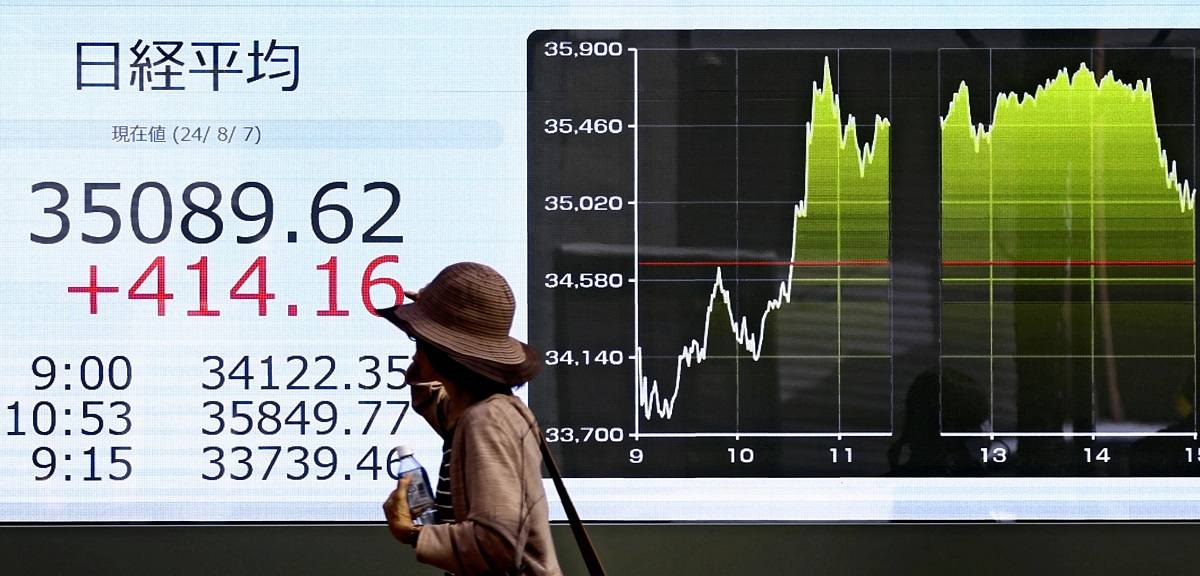
A woman walks past an electronic screen displaying the closing price of the Nikkei Stock Average in Chuo Ward, Tokyo, on Wednesday.
17:29 JST, August 8, 2024
High-speed computerized trading using artificial intelligence has been suggested as one factor contributing to ongoing volatility of stock prices on the Tokyo market.
High-speed trading, or high-frequency trading, used by institutional investors to place a large volume of orders, makes it easier to buy and sell shares, but is thought to cause volatility in stock prices.
In high-speed trading, thousands of buying and selling orders are automatically placed each second based on stock prices, indexes and words used in online news, among other factors.
By using AI, traders are supposed to be able to process more information and use this information as an important resource for making decisions.
High-frequency trading, in Japan used mainly by European and U.S. hedge funds, accounts for more than 60% of orders and about 40% of the total value of stock sales on the Tokyo Stock Exchange, the Financial Services Agency has said.
High-speed trading was being used extensively on the days stock prices were volatile.
The value of trades on the top-tier Prime section of the Tokyo Stock Exchange hit a yearly high of ¥7.9 trillion Monday, when the Nikkei Stock Average marked its largest decline in history.
Tuesday saw the third-highest record for trade value this year at ¥7.7 trillion, and the Nikkei index set a new record increase from one closing to the next.
On Wednesday, when stock prices fluctuated wildly, trade value was the fourth highest for the year at ¥7.3 trillion.
Many observers believe that high-speed trading has certain level of impact on the market. “It’s natural for high-frequency trading to make stock prices more volatile,” said Akira Warita, president of Matsui Securities Co.
Takanori Adachi, a specially appointed professor at Tokyo Metropolitan University, said that high-speed trading does not necessarily move the market in one direction, but tends to amplify movements when there are clear signals such as from Japanese or U.S. monetary authorities.
“High-frequency trading can also be affected by fake news or disinformation,” Adachi added.
As for the benefits, observers say such trading allows for a large volume of trades to take place and makes stock prices more accurately reflect the value of corporations.
“The emergence of high-speed trading has made it easier for investors, including individuals, to complete transactions thanks to the large volume of buy and sell orders placed through the technology,” said Sadakazu Osaki, a researcher at Nomura Research Institute, Ltd.





